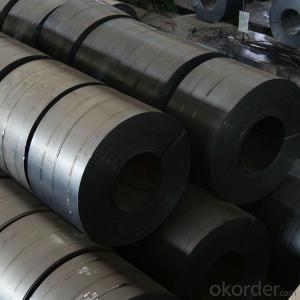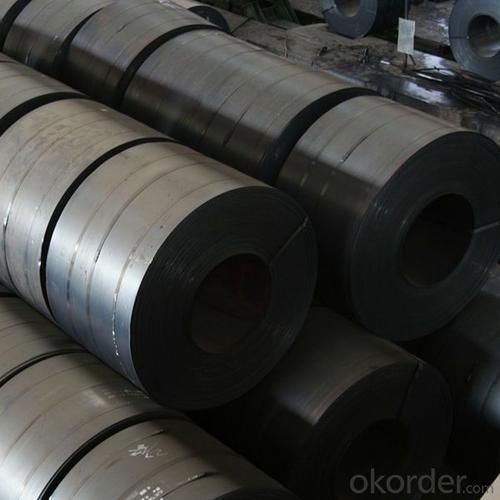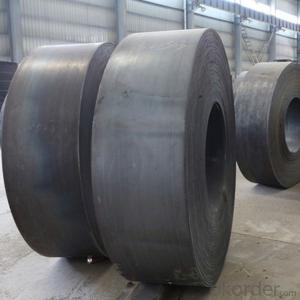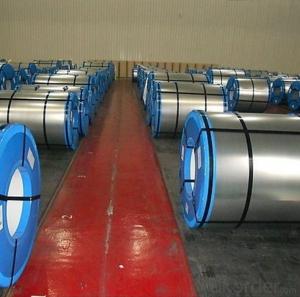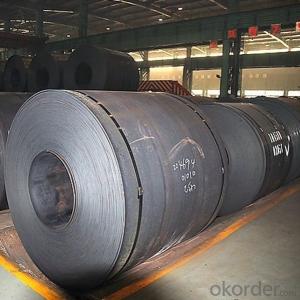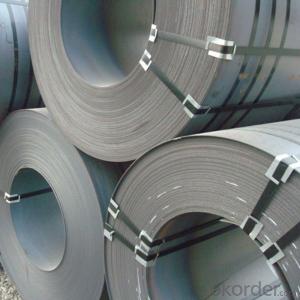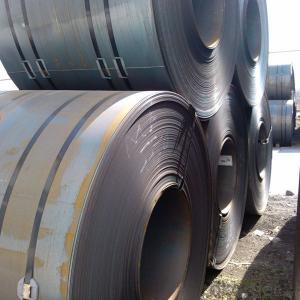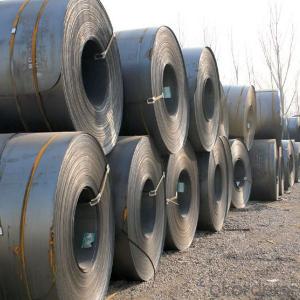Hot Rolled Steel Plates SS400 from China
- Loading Port:
- China main port
- Payment Terms:
- TT OR LC
- Min Order Qty:
- 25 m.t.
- Supply Capability:
- 10000000 m.t./month
OKorder Service Pledge
OKorder Financial Service
You Might Also Like
Specification
DESCRIPTION FOR CARBON STEEL PLATE
Production | hot rolled steel coils ss400 |
Port | Tianjin, China |
Category | Minerals & metallurgy |
Thickness | 1.8-16mm |
Width | 1000-1500mm |
Coil Weight | about 23 tons |
Material Grade | SS400\Q235\Q345B |
Technique | Hot Rolled |
Standard | GB ,JIS |
Test | With Hydraulic Testing, Eddy Current , Infrared Test |
Surface | 1) Bared 2) Black Painted (varnish coating) 3) Galvanized 4) Oiled |
Package | in bundles, strapped by strips. Or as customer’s requirement |
Sample | Common products, we can provide freely, for special production,we can depends on negotiation. |
MOQ | 50 tons |
Payment | 100% L/C at sight, 30% T/T in advance, and the balance against the copy of B/L or negotiation |
Delivery time | Within 10-25 days, according to quantity, asap save customer’s time |
Certificate | ISO |
TRADE TERMS :FOB, CFR, CIF
PACKING:
1.Big thickness:by bulk vessel
2.Small thickness:packed by steel strips and shipped by container
3.According to the requirements of customers'
PICTURES:
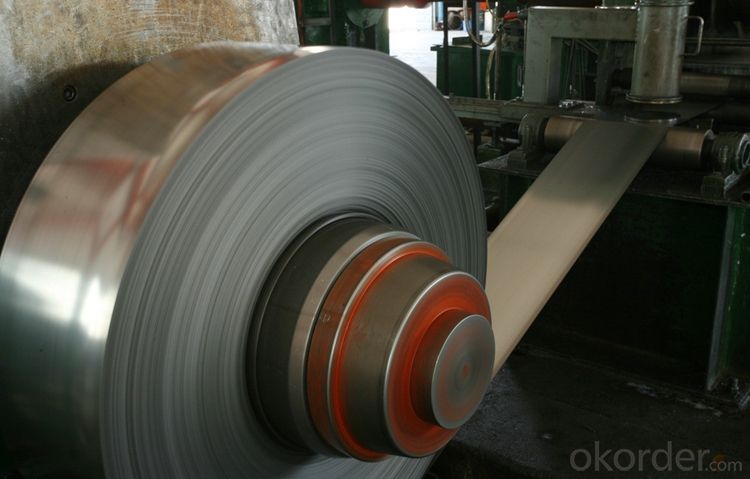
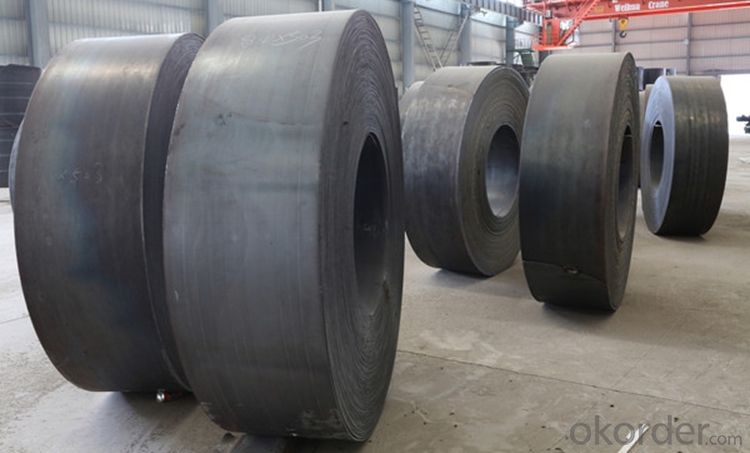
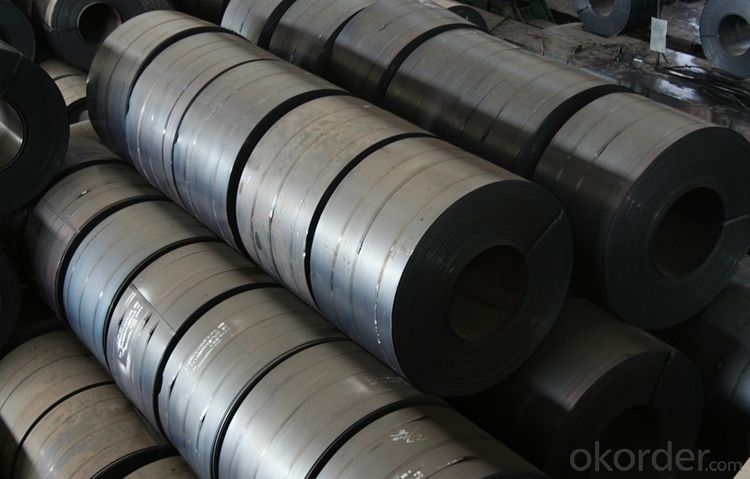
FAQ
Q:How to order?
A: Please send us your purchase order by email or fax .or you can ask us to send you a proforma invoice for your order .We need to know the following information for your order.
1) Shipping information-company name, street address, phone number, fax number, destination sea port
2) Product information – Quantity, Specification (steel type, thickness, width, surface finish)
3) Delivery time required
4) Forwarder's contact details if there's any in China
- Q: How are steel coils inspected for surface quality?
- Steel coils are inspected for surface quality through a visual examination process, where trained inspectors closely examine the surface of the coils for any defects or irregularities. This includes looking for scratches, dents, stains, or any other imperfections that may affect the quality of the steel. Additionally, advanced technologies such as automated scanning systems or cameras may also be used to detect and analyze any surface defects that are not easily visible to the naked eye.
- Q: How are steel coils used in the production of oil and gas equipment?
- Steel coils are used in the production of oil and gas equipment primarily for their strength, durability, and corrosion resistance. These coils are utilized to manufacture various components such as pipes, valves, fittings, and storage tanks that are required in the exploration, drilling, and transportation of oil and gas.
- Q: What are the different types of corrosion protection methods used for steel coils?
- There are several types of corrosion protection methods used for steel coils. These include applying a protective coating such as paint or zinc, using corrosion inhibitors, employing cathodic protection techniques, and utilizing barrier protection methods like galvanizing or metallizing. Each method has its own advantages and is chosen based on the specific needs and requirements of the steel coils.
- Q: How are steel coils priced and traded in the market?
- Steel coils are typically priced and traded in the market based on various factors such as the current demand and supply, raw material costs, production costs, and market competition. Steel coil pricing often takes into account the specifications of the coil, including its size, thickness, width, and grade. Additionally, market dynamics, such as global economic conditions, trade policies, and currency fluctuations, can also influence steel coil pricing. Traders and buyers negotiate prices based on these factors, and the final price is determined through a combination of supply and demand dynamics and market forces.
- Q: I got a muzzy carp point arrow and its head is steel with 1.7% carbon, its used in the water. Will i have to dry it after every use or is it stainless. Thanks
- carbon will rust.. stainless doesn't rust unless it touches carbon so its definitely not stainless. Since its only 1.7% its extremely unlikely that it will rust unless you leave it outside for extreme long periods of time. Either way you should take care of it. Put it in the garage or something but you don't have to dry it after every use.
- Q: Can steel coils be bent or shaped?
- Yes, steel coils can be bent or shaped. Steel coils are flexible and can be easily manipulated into various forms or shapes through processes like bending, rolling, or stamping.
- Q: How are steel coils inspected for quality assurance?
- Quality assurance for steel coils involves a rigorous process that includes various tests and checks to ensure their quality. Initially, a visual inspection is carried out to identify surface defects like scratches, dents, or rust, ensuring the coils are in good condition and free from obvious flaws. Afterward, a dimensional inspection is performed to verify the coils' dimensions and tolerances. This involves measuring their width, thickness, and length to ensure they meet the specified requirements. Any deviations from the standard dimensions are noted and addressed. Moreover, mechanical testing is conducted to assess the strength and durability of the steel coils. Tensile tests are performed to measure their strength and elasticity, while impact tests evaluate their ability to withstand sudden loads or shocks. Furthermore, chemical analysis is undertaken to determine the composition and purity of the steel. Samples are taken from the coils and analyzed in a laboratory to check for impurities or elements that could affect the quality. To comply with industry standards, non-destructive testing methods like ultrasonic testing or magnetic particle inspection may be used. These methods can detect internal defects or irregularities that may not be visible to the naked eye. Additionally, surface treatment inspections, such as galvanization or coating checks, may be performed to ensure the protective layers are applied correctly and meet the necessary specifications. In summary, the quality assurance process for steel coils includes visual, dimensional, mechanical, chemical, and non-destructive testing methods. These thorough inspections guarantee that the steel coils meet the required quality standards and are suitable for their intended applications.
- Q: The steel is orangish in colour and is mostly made of copper
- Steel is an alloy of iron and carbon and optionally one or more of numerous other materials. Copper is normally not used, except sometimes in small percentages. Steel is never yellow or orange in color. Reactivity of steel depends on the materials it is alloyed with. Chromium and nickel with steel make stainless steel, which is much less prone to reactive than iron. .
- Q: I am building a steel type competative team. my team so far isempolem, skarmory , Metagross, magnezone, lucario, ferrothorn.
- I'd say add Excadrill to the team. He's got pretty decent stats and a nice learnset. Otherwise Probopass works pretty well
- Q: What are the environmental and social impacts of mining, processing and using steel?
- It contains less than 0.25 % carbon. These steels are hot worked and produced for beam and structural application. Low carbon steels are not hardened appreciably by hardening process of heat treatment. A decrease in carbon content improves ductility mild steels are used for wires, rods, thin sheets, solid drawn tube, boiler plates, steel joints, channels and angles, structural sections, drop forgings. they are further classifies into dead mild, and mild steel dead mild steel It contains 0.05% to 0.15% carbon. It is used for making steel wires, sheets, rivets, screws, pipe, nail and chain. It has a tensile strength of 390 N/mm2 and a hardness of about 115 BHN. there are many company which produce their products from this raw material like tube, pipe, S31803 Duplex tube fitting, pipe fitting etc
Send your message to us
Hot Rolled Steel Plates SS400 from China
- Loading Port:
- China main port
- Payment Terms:
- TT OR LC
- Min Order Qty:
- 25 m.t.
- Supply Capability:
- 10000000 m.t./month
OKorder Service Pledge
OKorder Financial Service
Similar products
Hot products
Hot Searches
Related keywords
